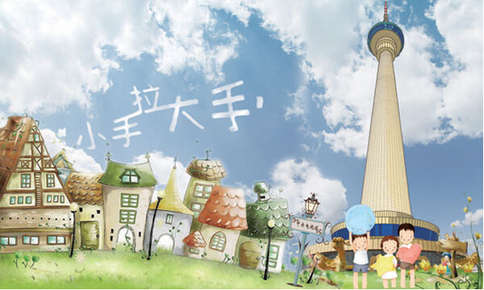Hangzhou, often referred to as the “Paradise on Earth,” is a city that captivates visitors with its natural beauty, rich history, and vibrant culture. For English-speaking travelers planning a trip to this enchanting city, there are several questions that might arise. This guide aims to address these queries and provide valuable insights to ensure a memorable visit to Hangzhou.
What Are the Must-Visit Attractions in Hangzhou?
West Lake (西湖 Xī Hú)
West Lake is undoubtedly the crown jewel of Hangzhou. This UNESCO World Heritage site is renowned for its picturesque landscapes, including the Ten Scenes of West Lake. Visitors can enjoy a leisurely boat ride, stroll along the Su Causeway, or relax in one of the many tea houses overlooking the lake. The serene beauty of West Lake is a must-see for any traveler.
Lingyin Temple (灵隐寺 Língyǐn Sì)
Lingyin Temple, or Temple of the Soul’s Retreat, is one of China’s most famous Buddhist temples. Nestled in the hills, this ancient temple offers a tranquil escape from the city’s hustle and bustle. The temple complex includes the Hall of the Heavenly Kings, the Great雄宝殿, and the Pagoda of the Five Hundred Arhats. A visit to Lingyin Temple provides a deep insight into Chinese Buddhism and its rich cultural heritage.
Hefang Street (河坊街 Héfāng Jiē)
Hefang Street is a lively pedestrian street that offers a glimpse into Hangzhou’s past. This historic street is lined with traditional shops, tea houses, and snack stalls. Visitors can sample local delicacies, purchase souvenirs, and immerse themselves in the vibrant atmosphere of this ancient thoroughfare.
How Can I Experience Hangzhou’s Rich Cultural Heritage?
Tea Culture
Hangzhou is famous for its Longjing (Dragon Well) tea, one of China’s most prestigious varieties. A visit to a tea plantation, such as the Meijiawu Tea Village, allows travelers to learn about the tea-making process and enjoy a traditional tea ceremony. Engaging with the local tea culture is a unique way to connect with Hangzhou’s heritage.
Traditional Arts and Crafts
Hangzhou is also renowned for its traditional arts and crafts, including silk embroidery, paper-cutting, and calligraphy. Visitors can explore workshops and markets where these crafts are made and sold. Participating in a hands-on workshop can provide a deeper understanding of these ancient arts.
What Are the Best Ways to Get Around Hangzhou?
Public Transportation
Hangzhou boasts an efficient public transportation system, including buses, subways, and taxis. The Hangzhou Metro is particularly convenient for navigating the city. English signage and announcements are available on some lines, making it easier for English-speaking travelers to use the system.
Bicycle Rentals
For those who prefer a more eco-friendly mode of transportation, Hangzhou offers extensive bicycle rental services. The city’s bike-sharing program, known as “Hangzhou Public Bicycle,” provides thousands of rental stations throughout the city. Cycling along the scenic paths around West Lake is a delightful way to explore Hangzhou.
Where Can I Find Authentic Hangzhou Cuisine?
Local Restaurants
To experience authentic Hangzhou cuisine, visitors should seek out local restaurants that specialize in regional dishes. Restaurants like “Lou Wai Lou” and “Tianwaitian” are renowned for their traditional Hangzhou dishes, including Dongpo Pork, West Lake醋鱼, and Longjing虾仁. Dining at these establishments provides a culinary journey through Hangzhou’s gastronomic heritage.
Street Food
For a more casual dining experience, exploring Hangzhou’s street food scene is a must. Stalls and small eateries throughout the city offer a variety of local snacks, such as 葱包桧儿, 片儿川, and 定胜糕. Sampling these street foods is a fun and affordable way to taste Hangzhou’s culinary delights.
How Can I Plan My Itinerary for a Memorable Trip?
Day 1: West Lake and Surroundings

Start your trip with a visit to West Lake, exploring its scenic spots and enjoying a boat ride. In the afternoon, head to the nearby Leifeng Pagoda for panoramic views of the lake. End the day with a traditional tea ceremony at a local tea house.
Day 2: Cultural Exploration
Begin your day with a visit to Lingyin Temple, followed by a stroll through the nearby Feilai Peak. In the afternoon, explore Hefang Street and its traditional shops and markets. Conclude your day with a dinner of Hangzhou specialties at a local restaurant.
Day 3: Tea Plantation and Arts
Spend your morning at a tea plantation, learning about the tea-making process and participating in a tea ceremony. In the afternoon, visit a traditional arts workshop to experience Hangzhou’s crafts. End your trip with a relaxing evening by West Lake.
Conclusion
Hangzhou is a city that offers a perfect blend of natural beauty, cultural richness, and culinary delights. By addressing common questions and providing valuable insights, this guide aims to help English-speaking travelers make the most of their visit to this enchanting destination. Whether you’re exploring West Lake, experiencing local culture, or savoring Hangzhou’s cuisine, your trip to Hangzhou is sure to be a memorable one.







